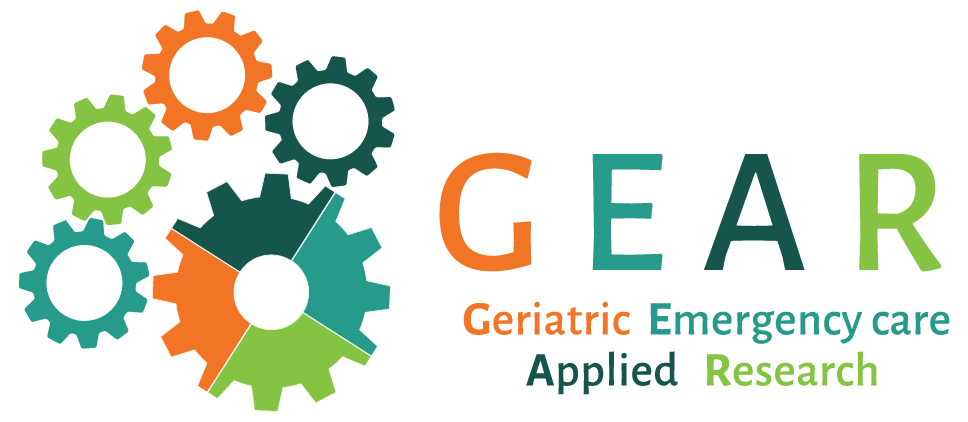About GEAR 1.0
The Geriatric Emergency care Applied Research Network (GEAR) aims to establish infrastructure to support collaborative, interdisciplinary research to improve care for older adults. Funded by the National Institutes of Health and other partners (grant #R33AG058926), GEAR brings together key stakeholders from emergency medicine, geriatrics, nursing, and social work as well as representing health care systems, clinicians, researchers, medical specialty organizations, advocacy organizations, caregivers, and, most importantly, patient representatives. GEAR aims to:
- Identify and prioritize research gaps (cognitive impairment, medication safety, elder abuse, falls, and care transitions) for older patients seeking emergency care.
- Create a multicenter data bank that is tested and validated with prospective data from GEDC sites.
- Foster and support interdisciplinary, multicenter pilot studies using GEAR infrastructure (RFA issued Fall 2021) for 1-year pilot studies.
- Support and grow research(ers) to improve emergency care for people.
Goals
- Transdisciplinary and inter-organizational partnership growth
- 9 partnered research grants
- Dissemination and communication across networks
- Publication of prioritized research gaps
- Sustainability
